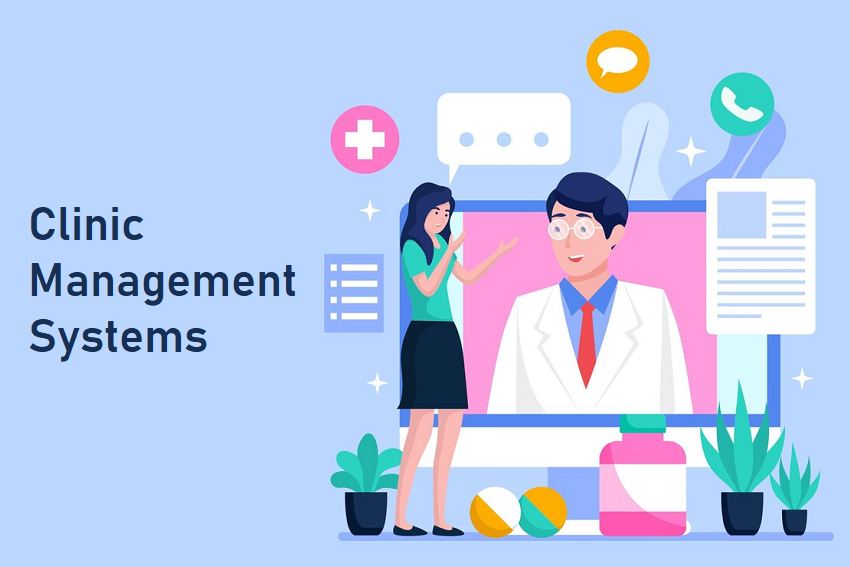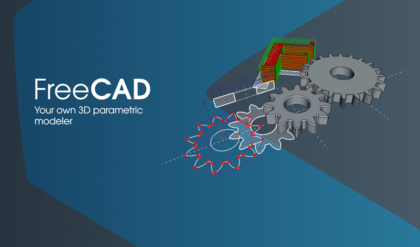The Ultimate Guide to Clinic Management Systems
Efficient management of a clinic has become a crucial factor in gaining a sustainable competitive edge in the healthcare industry to provide quality care services to a patient or healthcare facility. Clinic management systems are the key solution in automating a medical clinic. The following are some of the benefits that your clinic can enjoy once it adopts a clinic management system.

In the following article, we have summarized our list of the best clinic management systems that are likely to be critical to the industry. These systems are effective for obtaining the overall picture of the clinic functioning. Such systems are also equipped the clinic managers and other health care providers with real-time information and analysis to enhance patient processes.
These systems cover many aspects from scheduling patient appointments to resolving issues related to billing and financial responsibilities. It has been instrumental in changing the way clinics are run and making them more productive. Keep reading to know a list of 10 clinic management systems that can change the way your clinic grows and your healthcare facility develops.
Things to Consider When Choosing Clinic Management Systems
It is always crucial to make the right decision when selecting the clinic management system of your practice. Here are some key factors to consider when selecting a clinic management system to meet your needs:
- Ease of Use: It helps in the running of the system because when the staff takes a short time to adopt the software then the usability of the system is high.
- Features: Find out if there are features that will enhance your practice, and if so, that will make your practice much more productive.
- Integration Capabilities: The clinic management system is a perfect tool that can be integrated to the other software and hardware technology in a clinic to make its surroundings better and more productive.
- Scalability: It is important to select a system that can expand along with your practice. Concerns are based on the actual or potential characteristics of the number of providers and patients and the ability to expand the system.
- Customer Support: Choose a provider which is supporting users actively, providing materials for training and cooperation, and which has good previous experience.
- Pricing: This is another aspect to consider while selecting your clinic management system, it should be affordable. Price cannot be solely determined by the initial cost but has to include aspects such as features, functionality and the long-term cost.
List of The Best Clinic Management Systems
Find out the best clinic management systems that will help improve your healthcare practice’s performance, increase patient satisfaction, and improve productivity through efficient practice of appointment scheduling, billing and other processes.
Athenahealth
Athenahealth is one of the cloud-based healthcare services providers which has been recognized by leaders in the industry and buyers. Their software solution is centered on enhancing the financial and operational/clinical efficiency of medical practices. Owing to the provision of specialty specific solutions, Athenahealth has been able to establish itself in the congested healthcare environments. Patient engagement tools, revenue cycle solutions, electronic health record solutions, practice management solutions — all of that is included.
- Key Features: Appointment scheduling, telehealth, revenue cycle management, and robust reporting tools.
- Pros: Highly scalable, user-friendly interface, excellent customer support.
- Cons: Higher pricing for smaller clinics.
- Best For: Medium to large-sized clinics seeking comprehensive management tools.
eClinicalWorks
Another famous clinic management system that many people have recommended a lot is eClinicalWorks. The proposed software solution consists of an extended suite that covers electronic health records, practice, and revenue cycles, and patient engagement services. The training was planned to support practices to improve all key aspects of care delivery: quality, cost, and efficiency. Telehealth is also available in the system, which is popular nowadays because of the current pandemic situation.
- Key Features: EHR, patient engagement tools, practice analytics, and billing.
- Pros: Extensive features, strong patient portal.
- Cons: Steeper learning curve for new users.
- Best For: Clinics focused on EHR and patient engagement.
NextGen Healthcare
NextGen Healthcare has emerged as the ultimate healthcare technology solutions provider for ambulatory care specialty practices, as well as for the healthcare provider organizations. claim of NexGen system is that the program offers a package that covers EHR, Practice management and medical billing. It is intended for fulfilling the necessities of the different types of specialties, and its highly skilled nature guarantees a refined manner of merging information and presentation.
- Key Features: Specialty-specific templates, patient management, and reporting.
- Pros: Customizable solutions, strong customer support.
- Cons: Higher initial setup costs.
- Best For: Specialty clinics with unique workflow requirements.
AdvancedMD
AdvancedMD is an all-in-one standard clinic management software especially suitable for small to medium sized medical practices. It is also one of the easiest to use software with all the features one needs in practice management software. It deals with EHR, Practice Management, and Medical Billing, and having a friendly user interface means the doctors can always get to the necessary features and data. AdvancedMD also has patient self-scheduling which is a patient engagement portal through which a patient can communicate with his or her healthcare providers and retrieve his or her personal information.
- Key Features: Scheduling, billing, telemedicine, and reporting tools.
- Pros: Easy to use, excellent telemedicine features.
- Cons: Limited integration options.
- Best For: Small to medium-sized practices.
Allscripts
Allscripts is one more large company targeting the healthcare technology market that provides different software for various spheres of healthcare. Their clinic management system comes with superior functionality and simplicity that serves every practicing clinic well. It provides communication, patient management, and billing services electronically and their smart analytics add up real insights for the providers to make suitable decisions for the improvement of their patients’ care.
- Key Features: Integrated EHR, patient engagement tools, and analytics.
- Pros: Strong focus on interoperability.
- Cons: May require additional customization for full functionality.
- Best For: Clinics prioritizing EHR and data sharing.
Centricity EMR
Centricity EMR for Clinic – (GE Healthcare) which provides a clinic management system for use in clinics or practices with limited to average numbers of patients. The tools provided include electronic heath records, practice management, and medical billing along with a friendly user platform for the medical personnel it serves. Drawn has reduced in terms of patient self-scheduling. The patient has access to records so, the patient has now access of records, interacting with doctors and other practitioners in the care plan and which is better experience and care plan.
- Key Features: EHR, billing, and integration with third-party applications.
- Pros: Excellent integration capabilities, robust reporting tools.
- Cons: Complex setup process.
- Best For: Clinics requiring advanced reporting and integration.
Cerner
This multinational healthcare IT corporation is Cerner, which provides clinic management systems and other solutions to other settings. They offer electronic health records, practice management, and revenue management. Their system’s analytical functionalities mean that providers can use the data to make better decisions to enhance patient outcomes. As the leading HIT software supplier, Cerner is highly appreciated for customer support and long-term development of new solutions for healthcare practices.
- Key Features: EHR, patient portals, and data analytics.
- Pros: Highly scalable, strong analytics tools.
- Cons: High cost for small clinics.
- Best For: Large clinics and healthcare systems.
Meditech
It must be stated that Meditech is a longstanding clinic management system supplier that creates solutions for various healthcare establishments, such as hospitals and practices. The above-discussed scientific system offers solutions for electronic records, for practicing, and revenue cycle, and the interface of MEdit should make it convenient for medical staff to use. Security is also a major concern in the product and patient data is also secured and safe in Meditech.
- Key Features: Patient records, billing, and analytics.
- Pros: Strong focus on EHR, good integration options.
- Cons: Limited customization options.
- Best For: Clinics heavily reliant on EHR functionality.
Aarogya
Aarogya is clinic management system developed for clinics based in India. It has functions of electronic health records, practice management, and medical billing; to add on it, the system is designed to be easy to use for medical staff. Furthermore, they designed a patient portal through which the patient can access patient information and interact with the patient care providers such as patient engagement and health information exchange. This system is best fitted for clinics and hospitals situated in India because it has features that are unique to the industry within the country.
- Key Features: Appointment scheduling, billing, patient records, and SMS alerts.
- Pros: Affordable pricing, localized features.
- Cons: Limited scalability for larger organizations.
- Best For: Small to medium-sized clinics.
CureMD
CureMD is an all-in- one clinic solution, which includes electronic health records and practice management, as well as medical billing. It is intended to meet the unique requirements of different medical sectors and is considered to have high analytical functions. Besides there is a patient portal through which a patient can get his records and interact with his physicians thus increasing patient satisfaction and cooperation. It is easy to navigate and the tools designed facilitate comprehensive security to protect patient information.
- Key Features: EHR, practice management, and billing tools.
- Pros: Excellent compliance features, intuitive design.
- Cons: Limited offline functionality.
- Best For: Clinics focused on compliance and ease of use.
Benefits of Clinic Management Systems
The system is an important solution, as part of moving the medical clinic towards the use of automation. The following are some of the benefits that may be realized once your clinic has implemented a clinic management system.
Time Savings
The first key improvement that clinic management system competition provides is the time-savings for clinic staff. Automating these tasks frees the employee up to perform more important tasks like scheduling appointments, managing patient data and making reports. Further, these systems also contain some features which are useful in reducing the time lag between the patients and their physicians to improve the existing work flow rates.
Improved Patient Experience
It is obvious that the effective clinic management system offers a great value for patients by providing them personalized and efficient service. It’s therefore easier for patients to schedule their appointments online, receive notices about their upcoming appointments, and get easy access to their medical records. Additionally, resort visitors experience the clinic better during their visit thanks to faster check in processes and better communication.
Financial Efficiency
Another advantage of clinic management system is the possible enhancement of clinic financial productivity. The system assists in managing the aspects like invoicing, insurance claims, and billing in the best way. These tasks can be automated and, with the help of generating real-time reports on the clinic’s financial state, the chances of errors and inconsistencies and, as a result, losses, are minimized.
Data Security
Last on the list, the clinic management systems are most specific on the privacy of patients’ details. Since healthcare is an industry which deals with a lot of private and personal data, it is important to have some ways in which this information will be protected. For example, they use data security measures like data encryption and secure user authentication details in new clinic management systems to prevent data leakage of patient data.
Conclusion
Therefore, the integration of top 10 clinic management systems can revolutionize the delivery of health care services. In fact, these systems are useful for improving the experience of everyone involved in a patient’s care as it helps with better communication and patient scheduling and takes away the burden from administrative work.
With the advancements in technology coupled with growth in the healthcare sectors implementing these clinic management systems can be a boost to healthcare practices in terms of competition and patient satisfaction hence a boost to health care delivery. As life advances the growth of technology trends in fields of practice can be a key factor to the sustenance and improved delivery of health services.
FAQs
What is a clinic management system?
Clinic management system is a general term for a complete clinic organizational software application and it serves to automate most of the clerical functions performed in a clinic. It includes patient handling; organizing appointments; record keeping; invoicing and payments; and many others-all in one easy to use interface.
Why is a clinic management system important?
These system is very important for the survival of any clinic since it makes the operations of the clinic run smoothly. This eliminates much of the paperwork required from people, thus less chances of making mistakes and less time required in paperwork, instead more time can be focused on patients. Also, it improves patient data management to improve the processes of diagnosis, treatment and follow up.
How do I choose the right clinic management system?
Ease of use, adaptability, expandability and compatibility are the dominant factors to consider when making a choice about an LMIS. First, you have to determine how well the system is going to fit into the hardware and software that’s already in place in the clinic.
Are clinic management systems secure?
Yes, clinic management systems should be developed to address the issue of security. It can secure the sensitive patients’ information by use of data encryption, role-based access control measures and user authentication techniques. However, there should be certainty that the chosen system meets the standards of data protection and privacy, being HIPAA compliance.
Do these systems support telemedicine?
Telemedicine functionality can be integrated into most of clinic management systems. These systems enable a healthcare provider to have teleconsultations with a patient, screen the progress of the patient, and even have a general remote patient-provider connection.
Can these systems be customized for specific specialties?
Yes, it is possible to incorporate clinic details and distinguish clinic management systems for various medical fields. Several software solutions can come with one or more modules and have functions for different fields of healthcare, including primary, dental, psychiatric, and rehabilitative care. This means that the clinic, and other healthcare workers can get maximum value out of the system because the system has been built to meet the clinics and the provider’s needs.


